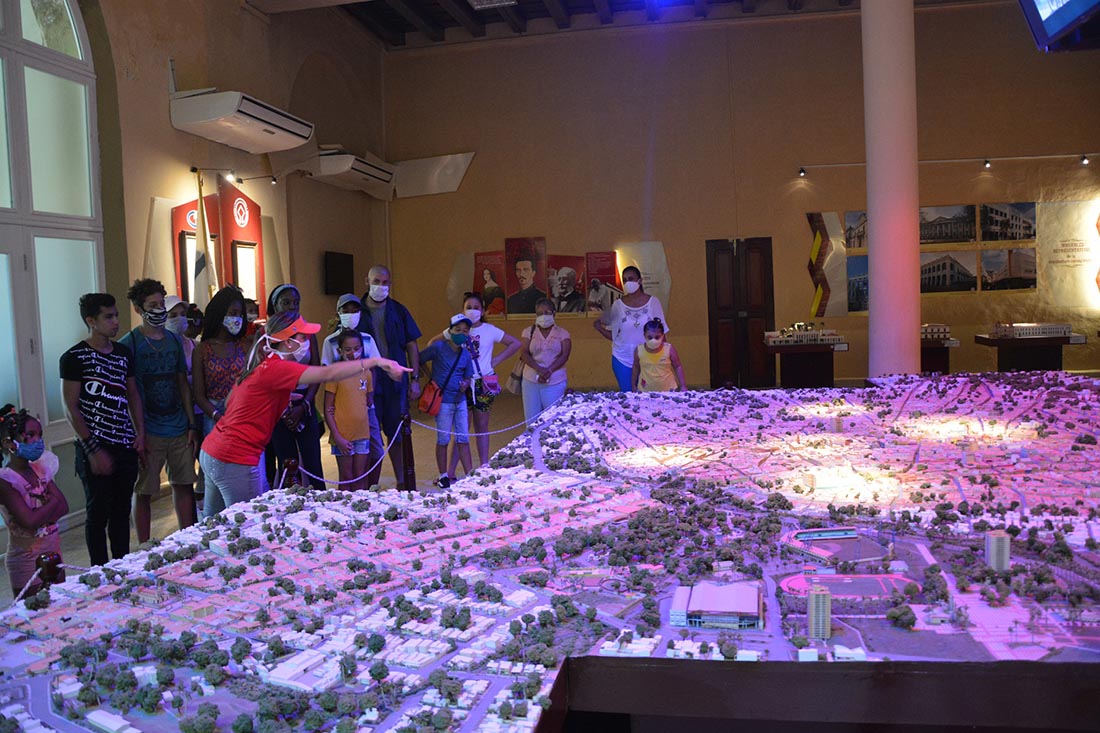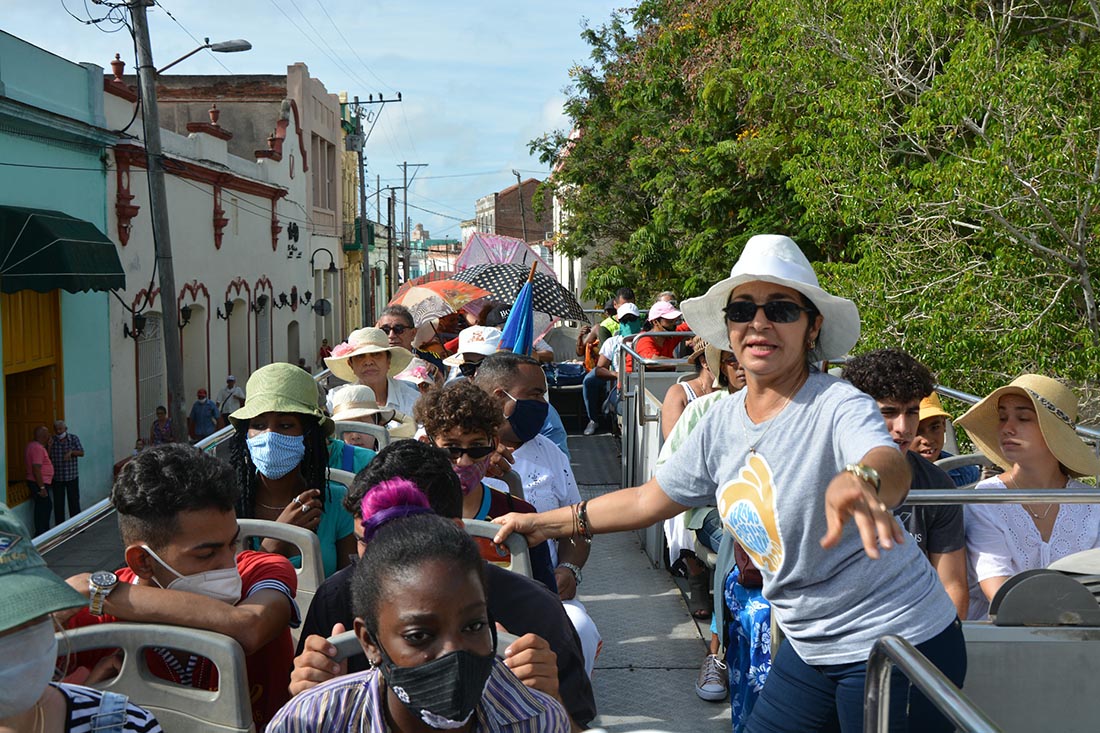By: Yusarys Benito Deliano & Alejandro García Gutiérrez
Behind the summer activities, concerts around the city, artistic presentations by children, sociocultural projects, exhibitions and even in the works carried out in the city, there are people who, from the satisfaction offered by being part of the cultural sector, enhance the work of the Office of the Historian of Camagüey city.
You may not know their names, but they put a lot of determination in each of the activities that as a whole contribute to the integral formation of our city dwellers. It is important, for example, the work of the workers of a singular place in the city.
“The scale model gives you the first elements, the first characteristics so that from there you will be motivated to visit the city, to investigate it a little more. The institution has an entire program where activities with students predominate, a fundamental sector with which we work. This helps children to have fun and learn and that is one of our objectives, to always educate with a didactic message, “says Yolanda López, director of the Interpretation Center of our Heritage City.
Just as Yolanda, another woman from Camagüey, assumes culture as the broad concept that not only includes artistic manifestations, but also manifests itself in education and relationships with other areas of society.
María del Carmen Pontón, director of the Carlos J. Finlay Birthplace explains to us that “for us, one of the fundamental things that our sociocultural project has is that it not only seeks to develop scientific activities, but always in all the activities that it carries out includes a cultural brushstroke. Furthermore, there are activities carried out with teenagers, children, but always with the aim of disseminating the life and work of Carlos J. Finlay and little-known facts about him. ”
In that effort to be closer to the people of Camagüey, feed the soul and take care of the spirituality of this city, walk in the footsteps of those who, in the Historian’s Office, have found the place to defend the national culture.
“Culture is thought, cultural activities must be thought with emotion and love. For me, culture really encompasses a large part of my development as a person and as a professional. “This is how Rosilda Viera, a specialist at the Cultural Management Center, defines what culture means to her and being part of the workers in this sector.
And then, behind the talent of a Harlequin, the explanations to the family about the historic center or the projects with the elderly, there is the enduring commitment of a culture worker; those of anonymous and consecrated labor.
Translated by: Aileen Álvarez García









